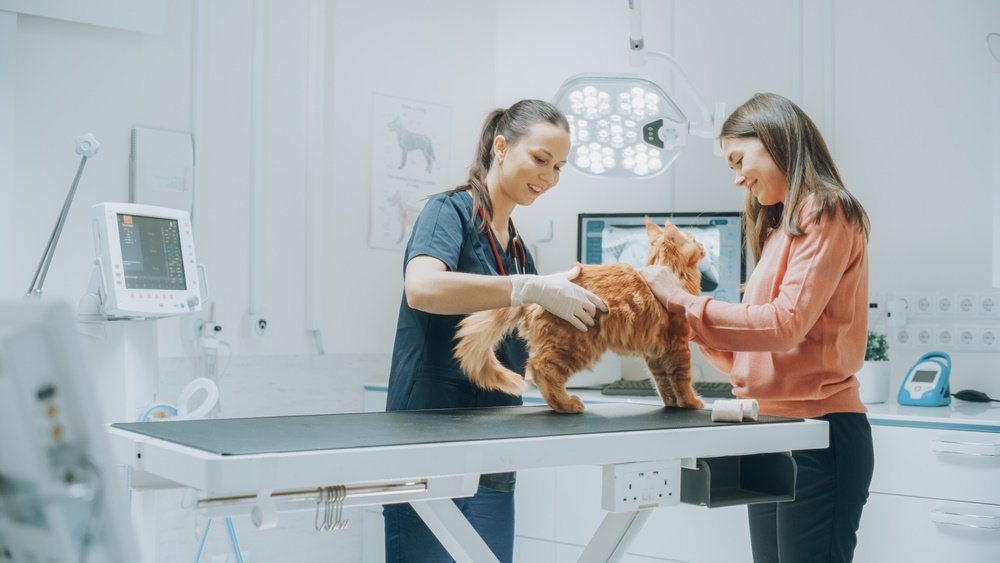Whether you get a kitten, a young cat, or even an older cat, you’ll eventually have to care for your older cat. Those with younger pets won’t have to worry for a while, but if you have an older cat who’s starting to enter senior years, or if you’ve recently gotten a senior cat, you need to understand that caring for a pet at this age is a little different to caring for a younger cat in the prime of its life.
There’s a lot to take on, but with a good understanding of what it takes to care for an older cat, you’ll likely be able to handle it.


What does a vet do during a senior cat checkup?
Having your senior cat checked at a licensed veterinarian’s practice is essential to keeping your cat happy and healthy, but what exactly does it involve? A senior cat checkup consists of five main components that help your veterinarian spot potential health issues while they’re still treatable. And unlike taking a younger cat for a checkup once a year, it’s recommended that you take your senior cat in approximately every six months to address any health concerns that may arise with age.
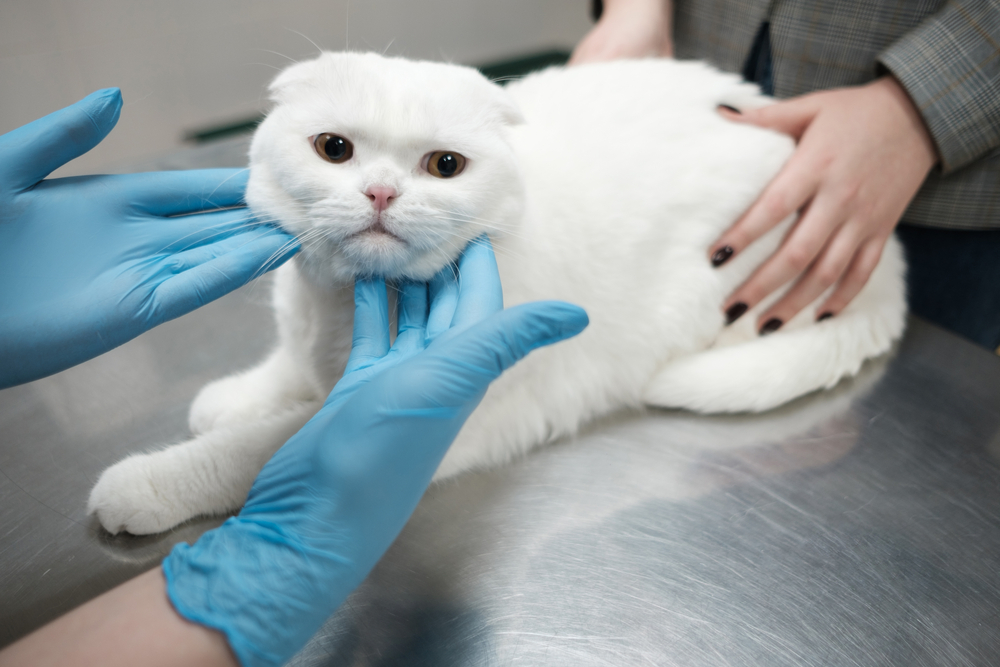
Urinalysis
A urine test is one of the best ways to check your cat’s kidneys, but it also checks for urinary tract infections and can help detect diabetes, making it an essential part of any senior cat health check.
Blood Tests (aka Lab Work)
Just like you would go to the doctor and get a blood test to see what’s wrong with your cat, the same is true for your cat. Blood tests can tell you a lot about a lot of things that are going on with your cat even if there are no visible changes, making them an essential tool for early detection.
As cats get older, they may start to have thyroid problems. This is a hormone test that your vet will use to make sure everything is functioning properly. Regulating hormones can help calm your cat’s mood, aid metabolism, and ease the strain on some of their organs.
This test will provide information on the various organs and their functioning. This will include the liver and kidneys. The thyroid is often included in the panel. In some cases, electrolytes and a complete blood count will also be included in the chemistry panel. This will provide the most comprehensive picture of your senior cat’s health.
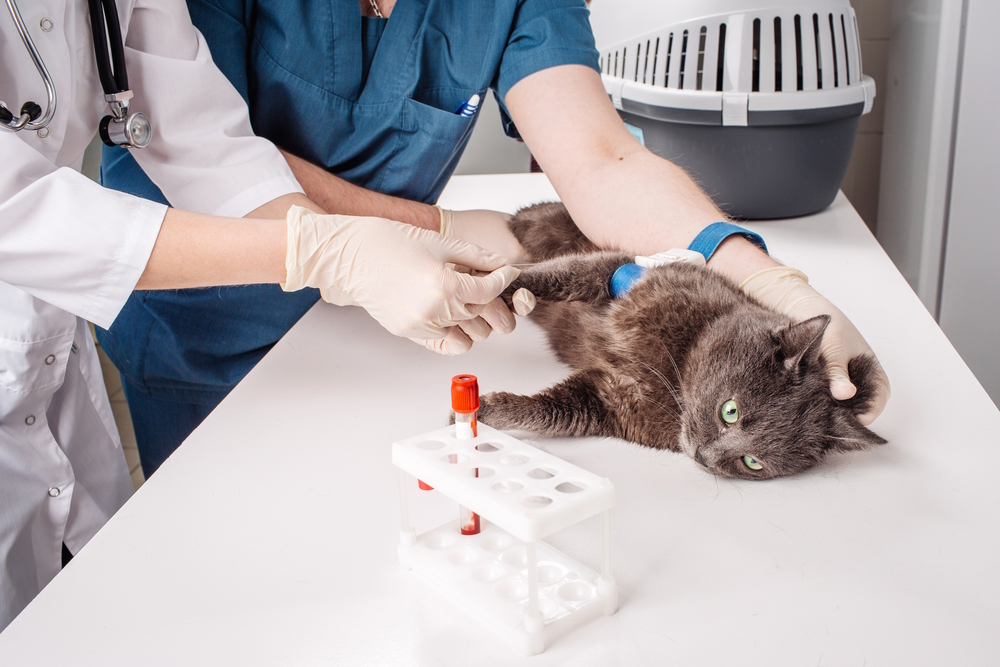
Blood tests may also include taking a urine sample. Depending on how the sample is taken and processed, it can check for kidney function, infection and the presence of crystals. Urine is a great tool to detect very subtle changes in your cat and spot them early, before they cause major complications.
Although it is not technically a clinical test as it does not take blood or urine samples, blood pressure testing in older cats is essential. If your cat’s blood pressure is too high, it can put undue strain on various organs and lead to fatal hypertension if left untreated. High blood pressure can usually be treated with medication, but it does not produce any outward signs or symptoms and can be fatal if left untreated.


Care tips for senior cats
Having an older cat means spending more time caring for it. Mistakes can lead to big problems for older cats. That’s why we’ve taken the time to highlight the 5 most important tips you need to follow when caring for an older cat.
1. High-quality meals for seniors
A low-quality diet is bad for any pet, but it can be especially harmful to older cats. Talk to your vet about switching your cat to a senior diet. Your vet can help you determine your cat’s optimal weight and recommend a senior-specific diet to help her reach or maintain her ideal weight.


Hepper 360 Cat Feeder, Stainless Steel, Bite Resistant…
- No Mess – The 360° tray of this cat food and water bowl set has a raised design to catch food and prevent messes…
- Whiskers-friendly – The shallow, wide metal container with a flat base allows your cat to enjoy…
- CHEW SAFE MATERIALS – Kittens and cats love to chew on silicone and soft rubber, but they can choke on them…
Feeding your cat a quality diet is important to keep them healthy and happy, but it’s not just the food you choose: the dishes your cat uses are also important. Hepper Nom Nom Cat Bowl We love NomNom’s unique five-star design that prevents whisker fatigue, encourages good posture and aids digestion. Plus, it’s beautifully crafted and a modern take on the traditional cat bowl, fitting seamlessly into any home style. To learn more about NomNom, click here.
At Catster, we have admired Hepper for many years and decided to take a controlling ownership interest so we could benefit from the superior designs of this cool company.
2. Maintain dental care
If you don’t maintain good dental hygiene for your cat, they may need professional help when they reach old age. Dental disease is common in older cats. It can affect their quality of life, including periodontal disease, oral tumors and broken teeth. In addition, if an infection in the mouth gets into the bloodstream, it can affect the heart, liver and kidneys, so you need to pay special attention to the area around the mouth.
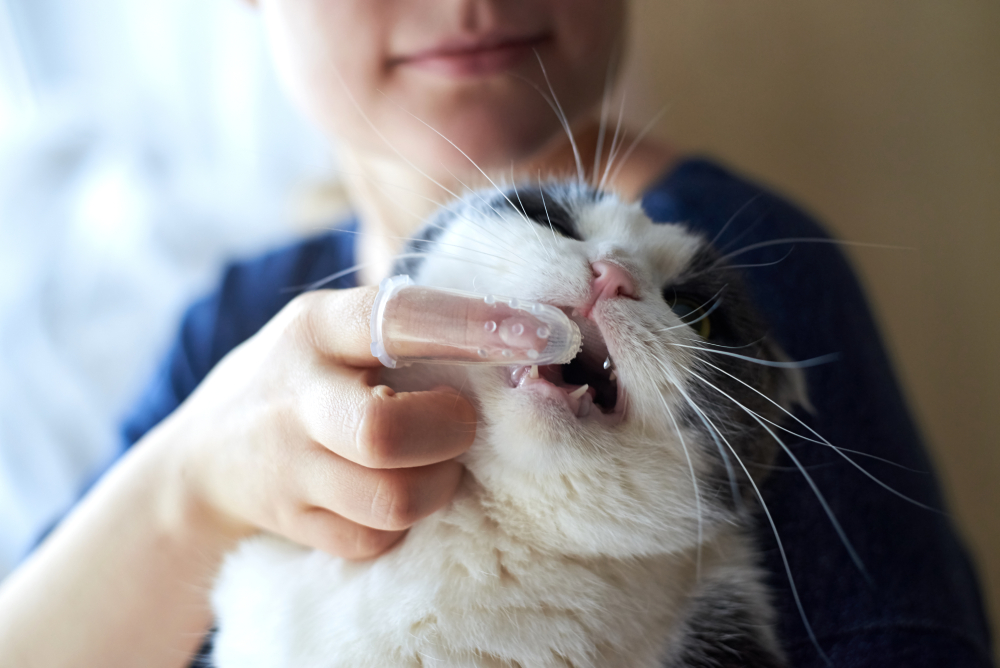
3. Keep moving
Keeping your cat physically active for as long as possible can make a big difference in how long it stays healthy. Play games with your cat, provide mental stimulation, and make sure they get their daily exercise fix. They don’t need as much exercise as kittens, but they shouldn’t just sleep all day either.
And if your older cat has a hard time getting around, consider using cat ramps or stairs to make it easier for them to climb. Arthritis is common in older cats, and while your pet still needs to move, it can take a toll on your cat, so do your best to make movements gentle on her little body.
It can be hard to find a toy that your cat will enjoy, that they’re really drawn to and will happily play with. That’s why it’s always a good idea to have a few options on hand until you know what your cat gravitates towards. We love the Hepper Catnip Stick and the Whale Kicker, each for different reasons. For cats who need a little encouragement to play, the stick is filled with organic catnip that’s enticing enough to draw even the laziest of cats in. The Whale is perfect for cats who love to hunt, pounce and kick. Both are extremely durable and can be washed and reused for future play dates. Find out which one is best for you below.
At Catster, we have admired Hepper for many years and decided to take a controlling ownership interest so we could benefit from the superior designs of this cool company.
4. Pay attention to the pain
Cats don’t show pain in the same way we do, and they can’t communicate their pain to us, so it’s up to you to take the necessary steps to notice and treat them. You should pay close attention to your cat’s body and behavior, and if anything out of the ordinary happens, it’s best to call your vet for advice.
5. Take your pet to the vet twice a year
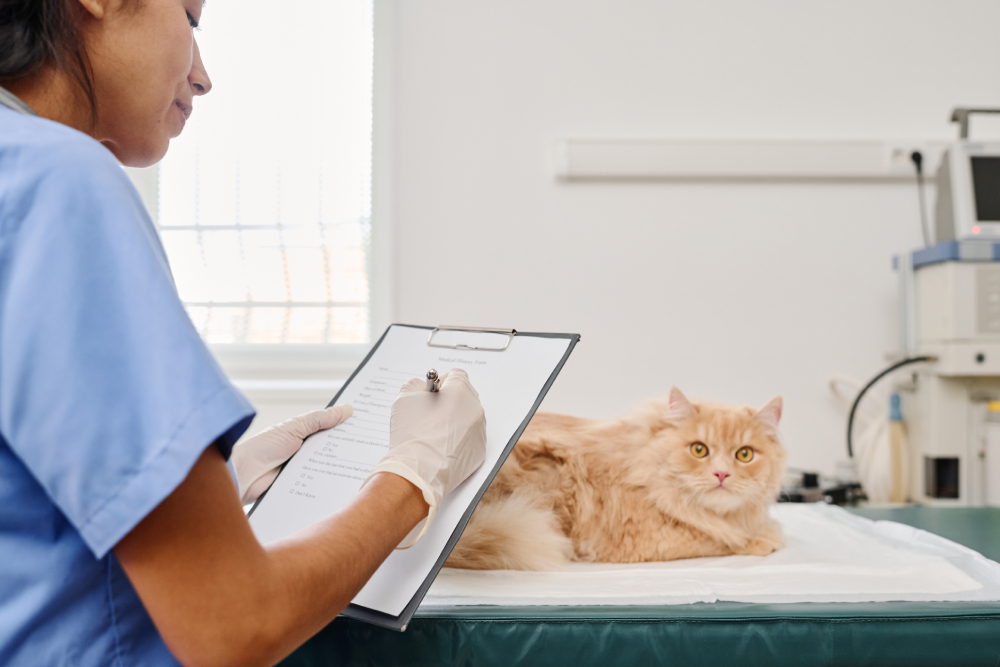
As mentioned above, most cat owners take their cat for checkups about once a year, but older cats should have them done at least twice a year. This way, your vet will always have a clear picture of what’s happening to your cat’s body as it ages, and will be more likely to spot any major issues early and provide better treatment.


Final thoughts
Now that you know a little bit more about the basics of caring for a senior cat, it’s your responsibility to meet her needs and take her to the vet frequently so she can keep up to date on what’s going on. It might be a bit of a hassle, but good care is important and worth it to help your senior cat live as long and as painlessly as possible.
Featured image credit: Gorodenkoff, Shutterstock

